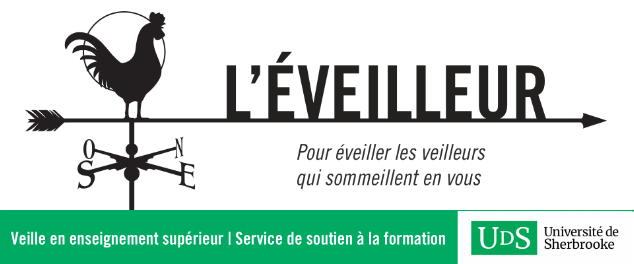Texte d’opinion intéressant de Jeffrey Selingo, ancien rédacteur en chef du Chronicle of Higher Education, et maintenant professeur à l’Arizona State University.
À partir notamment de statistiques provenant de LinkedIn, Selingo fait la démonstration assez convaincante qu’il faut non seulement former les étudiants à diverses compétences transversales (le raisonnement critique, la résolution créative de problèmes, la collaboration et une compréhension numérique de base), mais également que les “soft skills” de nature humaine sont à privilégier. Ainsi, il affirme que les employeurs américains manquent surtout de professionnels avec des habiletés de communication, plus que de gens qui savent développer des logiciels (…the professional networking site found a shortage of 1.4 million people with communications skills compared with a deficit of 472,000 with software development skills).
Par “compréhension numérique de base”, il estime que les étudiants doivent devenir des producteurs et non simplement des consommateurs d’information:
…The generation entering college and the workforce is often referred to as “digital natives” because they were raised on technology from a young age. But their relationship has been largely passive: switch on the device and use it. Being digitally fluent isn’t about turning more people into computer geeks. It’s about moving from a passive relationship with technology to a more active one — especially in understanding the how and why behind machines, not just the what.
Une autre habileté essentielle: la tolérance à l’ambiguïté:
As the rise of artificial intelligence makes some jobs obsolete, success in the future will belong to those able to tolerate ambiguity in their work. Too many recent graduates approach their job descriptions the way they did a syllabus in college — as a recipe for winning in a career. They want concrete, well-defined tasks, as if they were preparing for an exam in college.
Source: Selingo, Jeffrey J., Forget coding. It’s the soft skills, stupid. And that’s what schools should be teaching. Washington Post, Grade Point, 20 avril 2018






